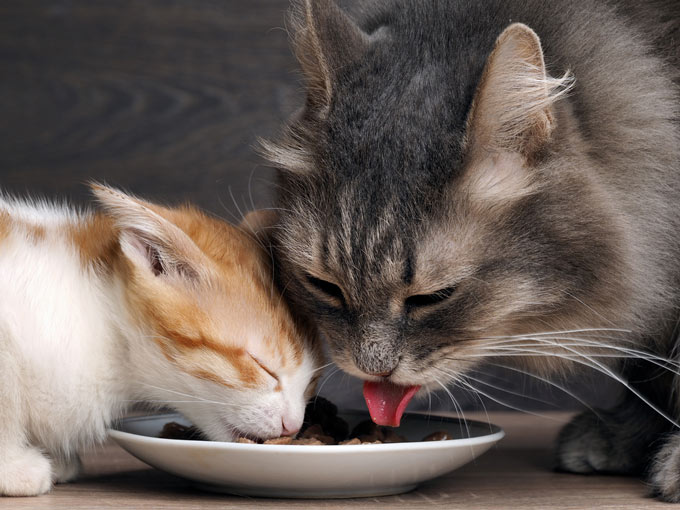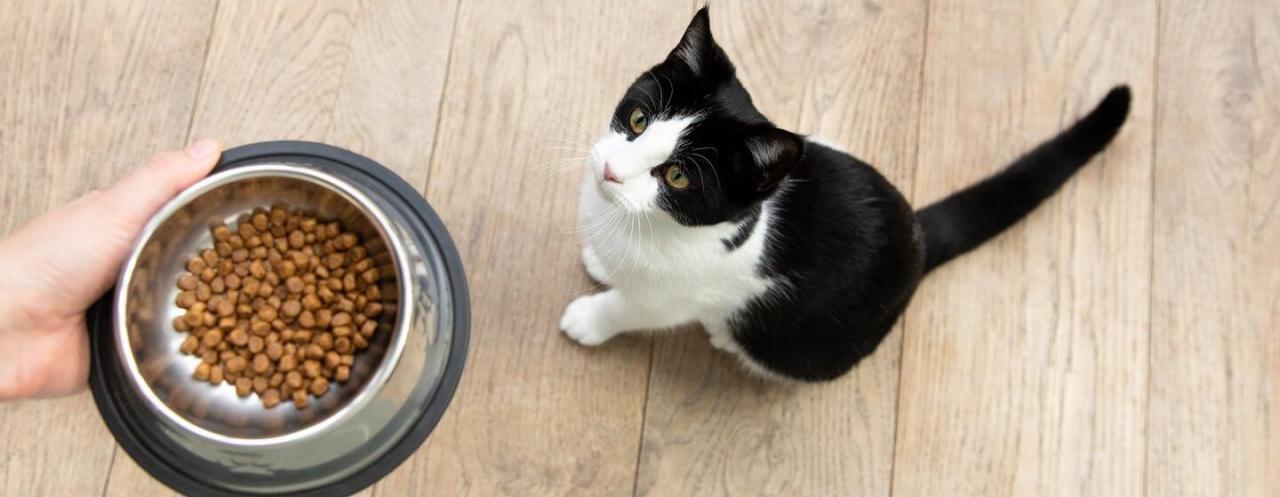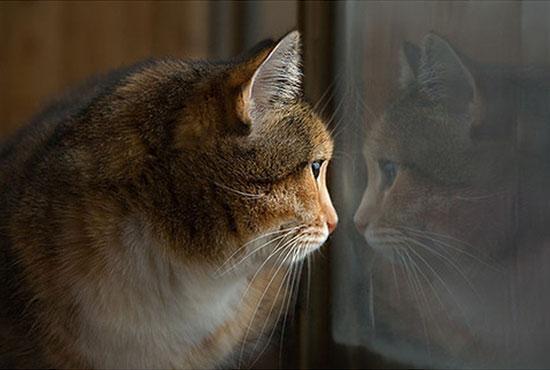Cats have always been in and around human lifestyles. Cats have been around for quite a long time. Many years ago, cats used to keep rodents and pests away for crops to be able to grow and people offered shelter and care for cats. Cats were part of agriculture and practices from the early back. Later on, cats grew to be a member in the house. They started becoming closer to our lives, not just for keeping rodents away, but even as a character or a living being. In modern times, manufacturing companies make cat food from different sources that are designed to help cats gain their required nutrition and keep their diets well-maintained. Different types of food help develop different aspects of cats’ health. Different foods are suited for different characteristics. There are wet foods, dry foods, foods that are meant for specific breeds of cats or those that are meant for different hair types, foods for specific health conditions, and those that are made for different age groups.
What do kittens eat and drink?

The kitten food category consists of types of food that are specially designed to enhance the growth and metabolism of cats. These contain higher calorie contents and other vital nutrients that growing cats need. While it is a subtle point to note that it wouldn’t harm an adult cat to consume kitten food, but on a long-term basis, this could have consequences. Adult cats do not require all that extra amount of calories or proteins. Considering the different varieties of cat food that are available, it is likely that the cat is going to develop into its right size and shape no matter what kind of food it is going to take.
In the case of older cats with teeth and gum issues, they are certainly not going to prefer crunchy food types that young kittens could easily chew up. Older cats tend to be more senile and are going to develop teeth and gum issues. For this specific reason, they would prefer simpler and softer food materials like canned food and soft meats. There are different guesses made on what the issues of higher proteins in older cats can be. There might even be research being conducted on it, but it has been found that older cats receiving higher amounts of protein tend to develop kidney diseases. This can equally be an issue with the proteins or perhaps the amount of phosphorus in the diets and not the protein.
In general, long story shortened, it is best to be avoided. That would be best for your senior cat. Older cats would also digest protein and fat a lot less efficiently than the average kitten who’s just springing into life. This could also affect the levels of chemicals and hormones in and around their body that could be counter-productive. Considering the concentration and purity of compounds in manufactured cat food, this can have a strong effect on the health of your senior cat.
What foods should pregnant cats eat?

Although all these factors prevail, you should keep in mind that a kitten meal once in a while does not seriously affect the lifetime of your senior cat. In fact, pregnant cats are specifically advised to consume kitten food. Since kitten foods are rich in protein, calories, and fat, these compounds would prove very suitable for pregnant cats who require all that extra energy for the kitten growing inside of them. Even then, it is suggested to keep an eye on the amount of intake of kitten food because obesity issues could develop in pregnant cats, that too when your cat is grown indoors and don’t spend much time outdoors, playing, or taking a walk.
What is an adult cat’s natural diet?

Most indoor adult cats need about 50 to 70 calories for each kilogram of their body weight each day. This does vary a lot depending on the kind of activity your senior cat has. It could be possible that your senior cat may require higher than that if it tends to be much more active. Canned food is a great idea because it does not contain a lot of carbohydrates and is generally high in proteins. They don’t need a lot of carbohydrates.
Even among food types, there is an equal difference of different companies that sell that food type. Different companies make the same type of foods with a different flavor or flare that contains different levels of proteins and nutrients than the other company. This is precisely why you need to read the labels on the packages and make sure that what you are buying is the best match to what you or your senior cat are looking for. Keep in mind that the age of the cat really does matter when you are considering feeding options, so weigh your choices carefully. One method that helps to make a solid decision on the kind of food you need to buy is as follows:
- Obtain the fat, protein, and moisture parameters from your food packaging or their information.
- Divide 10 by the difference of 100 and moisture levels on hundred.
- 10/(100-moisture)
Cats who are as old as 7 to 14 years are pretty much similar to humans who are as old as 40 to 70 years. Keep in mind that felines really don’t have that midlife crisis that we face. Instead, they start getting finicky with food. So, it’s up to you that they get fed well. It’s your responsibility to make sure that enough nutrients get into your senior cat’s body system with enough water.
Conclusion
To sum up, keep in mind, cats don’t really need all of the extra proteins and nutrients. So, if your cat is not that large and active all day, you don’t want to feed it what it does not need. Consider the fact that the food you buy off the shelves is manufactured with specific interests in mind so always consider which will help your senior cat.
